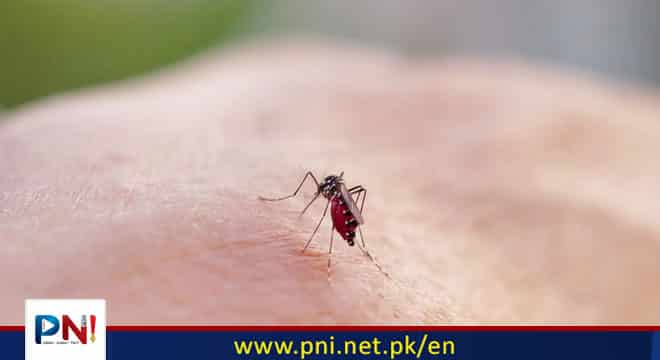Paris, Aug 31 (AFP/APP): Health authorities in Paris fumigated areas of the French capital for the first time on Thursday to kill disease-carrying tiger mosquitoes whose rapid advance through northern Europe is thought to have been accelerated by climate change.
Roads were closed and people asked to stay in their homes in southeast Paris during the early hours of Thursday as pest control contractors’ sprayed insecticide in trees, green spaces and other mosquito-breeding areas.
Such scenes are a regular occurence in tropical cities and becoming increasingly common in Europe as the tiger mosquito, which can carry the dengue, chikungunya and zika viruses, spreads from its native Southeast Asia.
“It was a first in Paris, but it’s not the first in France,” deputy Paris mayor Anne Souyris, who is in charge of health policy, told BFM television. “The south of France has been affected by tiger mosquitoes for some years.”
The regional health body for the capital, ARS Ile-de-France, said the area targeted for fumigation was 150 metres (500 feet) around the home of a person in the 13th district of the capital who had contracted dengue fever while travelling.
“These operations are being carried out to reduce the risk of transmission of dengue after a case was detected,” it said.
A second fumigation operation has been planned overnight Thursday-Friday in the Colombes suburb northeast of central Paris, after a second person fell sick with dengue fever after returning from a foreign trip.
City authorities are trying to prevent a chain of transmission developing in the Paris region, which is home to an estimated 12 million people.
If a tiger mosquito stings a person who has imported a virus from abroad, it then becomes a carrier of the disease.
– Rapid spread –
The tiger mosquito, also known as Aedes albopictus, arrived in southern Europe in the first decade of this century and has been pushing rapidly north ever since, establishing itself in France, Germany and Switzerland.
Health experts say it has thrived on the continent in part because of climate change, with warmer weather shortening the incubation period for its eggs while winters are no longer cold enough to kill off the pests.
After first being spotted in France in 2004, it is now present in 71 of its 96 departments on the mainland, even in areas close to the northern Channel coast, according to health ministry data.
People are encouraged to report sightings, with a special website collecting evidence.
“We are convinced that it is a risk that is going to get bigger,” Marie-Claire Paty, head of a vector-borne disease monitoring unit at the public health body Sante Publique, told AFP in April.
Dengue and chikungunya have similar symptoms of fever, cramps and headaches and both can have serious complications, with chikungunya affecting the nervous system and dengue fever sometimes causing haemorrhaging.
Zika often causes no symptoms in infected people, but the virus can be dangerous for fetuses and cause severe brain problems and malformations in children.
Andrea Ammon, director of the EU’s European Centre for Disease Prevention and Control (ECDPC), said in June that if the spread of the tiger mosquito continues “we can expect to see more cases and possibly deaths” from mosquito-borne diseases.
France had 65 locally acquired cases of dengue in 2022, according to the ECDPC.
Follow the PNI Facebook page for the latest news and updates.









